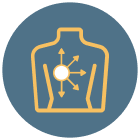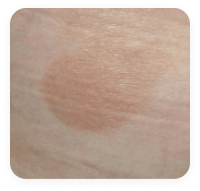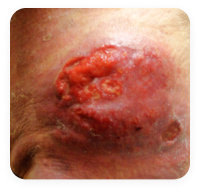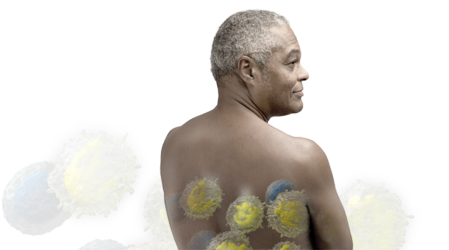What is Mycosis Fungoides (MF)?

MF is the most common type of CTCL and affects 50%-70% of people with CTCL

Many people only experience skin symptoms early on, but the cancer can spread over time

MF is more common in men, Black people, and people older than 50 years
What are skin symptoms of Mycosis Fungoides?
Patients will usually experience symptoms of Mycosis Fungoides on the skin.
These symptoms may include:
- dry skin
- itching and/or burning
- plaques
- rashes
- redness
- scaling
- patches
- tumors
Over time, larger areas of the skin may be affected, with more intense redness, scaling, itching, and/or tumors.

MF plaque*

MF patch*

MF tumor*
*Images courtesy of Dr. Oleg Akilov.
“Being a person of color with a darker complexion made it challenging to see the rashes and patches on my skin without a closer look.” — Carole, a real patient living with Mycosis Fungoides
Does Mycosis Fungoides affect more than the skin?

For about
1 in 3 people with Mycosis Fungoides,
the cancer cells spread within the skin or other parts of the body, including the blood.
It’s important to work closely with your care team, especially if your symptoms get worse.





